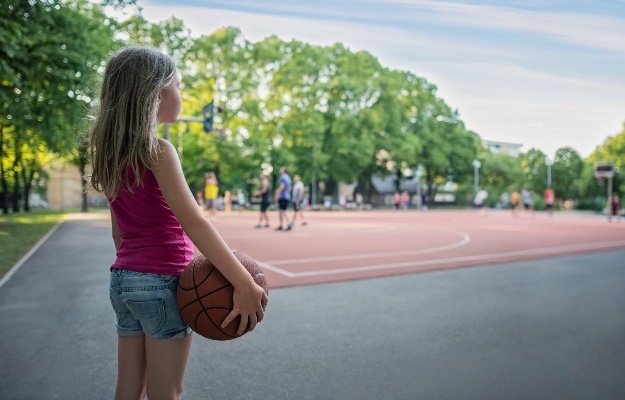
He'd always thought her daughter was simply the kind of child who preferred her own company and didn’t need a lot of friends. Lauren* had also thought her main concern about school this year would be the increased workload and exam prep now that her 10-year-old was in Grade 4.
“Instead I’m worrying about a child who’s unhappy because she struggles to make friends,” says Lauren (39), a Cape Town radiologist.
“Tarryn* is an only child and we don’t have many friends with kids the same age, so she’s used to playing on her own.
“She has friends but not a best friend and I didn’t think it was anything to worry about. I just figured she’d find someone she clicked with eventually.”
But since starting Grade 4 a few weeks ago, Tarryn has been withdrawn and quieter than usual. At first Lauren put it down to her getting back into the school routine after the holidays.
Then after checking Tarryn’s homework one evening Lauren asked who she played with during break and her daughter said she just read her book because she didn’t have any friends.
“It just broke my heart to hear her say that,” Lauren says.
“When I asked about the two girls she was friendly with last year she said they were in a different class now and played with other girls during break.”
Lauren spoke to some other moms and realised this pre-teen phase can be tricky as kids become more aware of social circles. But she’s also worried that being an only child hasn’t helped her daughter learn the social skills she needs to get on well with others.
“I suddenly thought, ‘Is she too used to doing her own thing? Does she understand the importance of being considerate and sharing? Maybe I didn’t organise enough play dates? How do I help her now?’
“Her dad thinks I’m overreacting and that making friends is something kids learn to do by themselves. But I don’t want her to be unhappy or lonely. And what if she becomes really anxious about it?”
Experts agree that friendships – or a lack thereof – can make or break your child’s self-confidence and happiness at school, and set the tone for how they fare later in life too.
“Friendships create a sense of acceptance and belonging,” says Ilhaam Solomons, a Cape Town clinical psychologist.
“It allows children to practise social cues and helps them learn how to tolerate uncomfortable feelings, and about give and take – life skills they’ll need to maintain healthy relationships.”
A child’s peers are like mirrors in which to see how the world perceives them, adds Stellenbosch clinical psychologist Naomi van Wyk.
“Ideally, friendships are a safe space in which a child can learn how to act to form and nurture relationships.”
When to worry:
If your child is unhappy or anxious about not having friends, it’s natural to be worried and want to do something about it. You know your child and should trust your gut instinct about whether you need to step in.
“Lauren should talk to her daughter about what happens during break to assess the situation,” Solomons says.
“The other girls might not be excluding her deliberately. Brainstorm ideas about asking to join in when the others are playing allowing Tarryn to take the lead.
“A parent’s job isn’t to prevent children from being unhappy,” Solomons says.
“It’s to teach them how to manage uncomfortable situations by equipping them with the skills to do so.”
Genevieve da Silva, an educational psychologist from Bellville, Cape Town, says parents should intervene if they notice a change in their child’s demeanour or personality.
“Does your child express feelings of loneliness or talk about being left out? Are they sad or moody for no discernible reason? Are they agitated, angry or withdrawn? Has there been loss of appetite or negative talk about themselves? These are all things to look out for.”
Children who are painfully shy might be struggling with anxiety, Solomons says.
“If they display a poor ability to develop or maintain any type of friendship you might want to consider an assessment with a registered psychologist to determine the cause of the anxiety.”
Making friends comes more naturally to some people than to others, and the reasons some kids struggle with it are vast and varied. It could be that they’re naturally shy or anxious, or that they just haven’t learnt the necessary social skills yet.
Practical steps to take:
- Encourage your child to regularly greet a potential friend and invite them to play, Da Silva suggests. “Acquaintances with similar interests become friends as they do things together.”
- Organise play dates – see the box below left for tips.
- Chat to your child’s teacher and ask that they monitor the situation, Solomons says. They might be aware of playground dynamics or other relevant issues. Perhaps they could even suggest ways to help.
- Organise opportunities to make friends outside of the school environment, says Johannesburg education psychologist Cara Blackie. Suggest your child play a sport or take up some other activity they enjoy so they get to spend time with kids with similar interests.
Is your little one going to big school? Win cash prizes for your little one with their first grader pic! The first prize get R3000, with lots of voters prizes up for grabs too. More here: https://firstgrader.you.co.za/




 Publications
Publications
 Partners
Partners

















